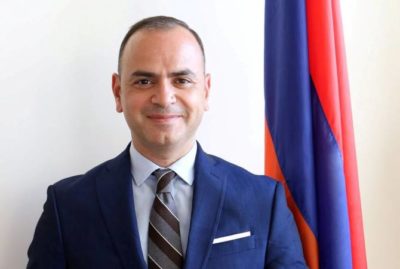YEREVAN — The Republic of Armenia’s first High Commissioner for Diaspora Zareh Sinanyan has one great advantage: he understands both the diaspora and Armenia, the two entities (which along with Artsakh) make up the Armenian nation. He was born in Armenia in 1973 and grew up in California, where his parents immigrated in 1988.
A lawyer by training, he was very active politically, serving on the Glendale City Council for several terms before becoming mayor.
Despite his success in his new country, he and his wife and four children moved to Armenia in 2019, and he assumed this new position in the government.
He is now in a position that at once is extremely difficult, but at a point in the country when many more are moving to Armenia from the diaspora. He spoke recently about the challenges the country faces as well as the summit his office is organizing for later this fall. (This interview was conducted a week before the latest Azerbaijani attacks.)
Diaspora Summit
One of the ways Sinanyan hopes to bring the two sides together is the Global Armenian Summit, which will be held from October 28 to 31 in Yerevan. The summit will serve as a forum for representatives of the diaspora, together with their local counterparts, to discuss the most pressing challenges and strategic questions of pan-Armenian significance.











